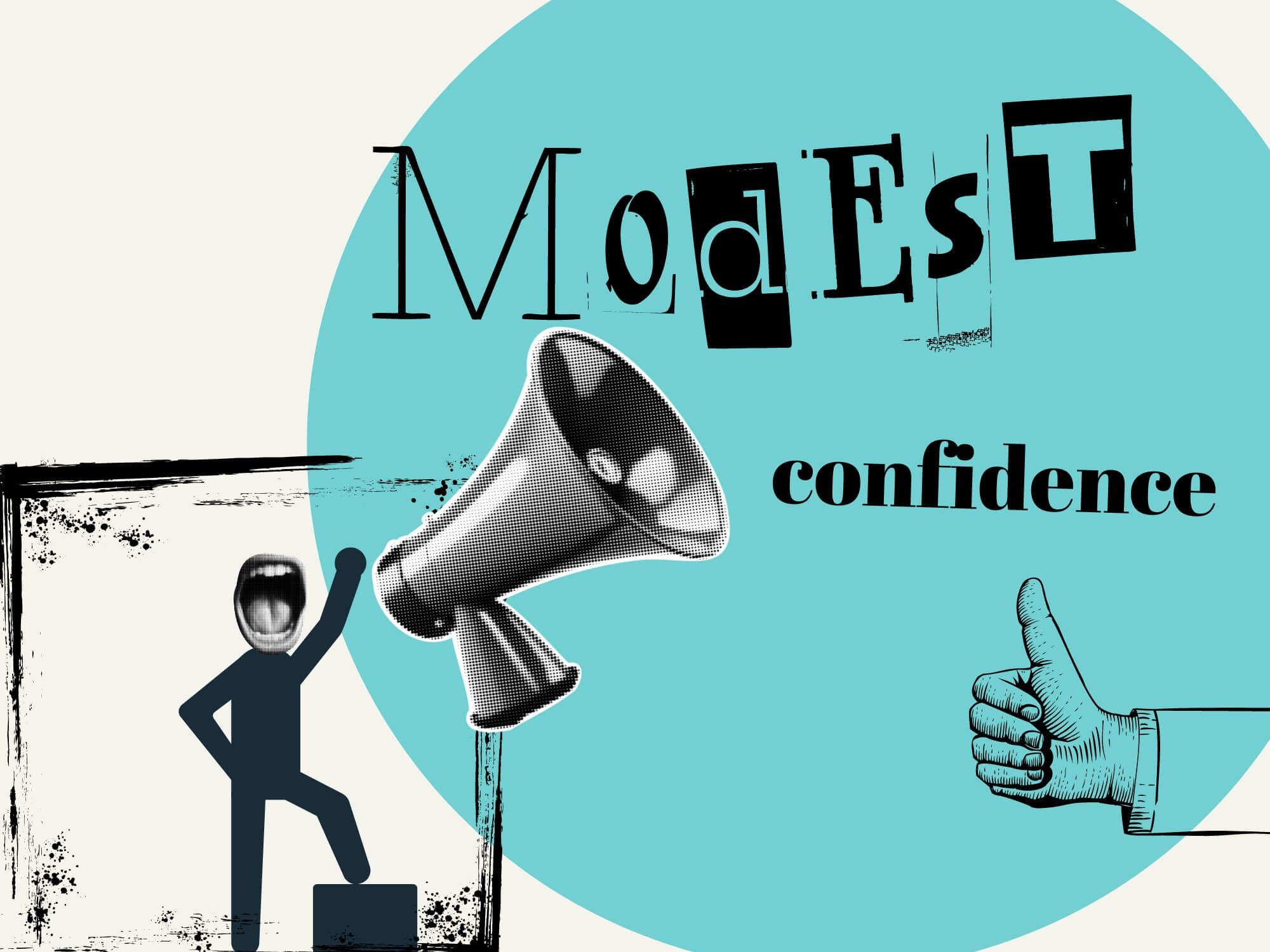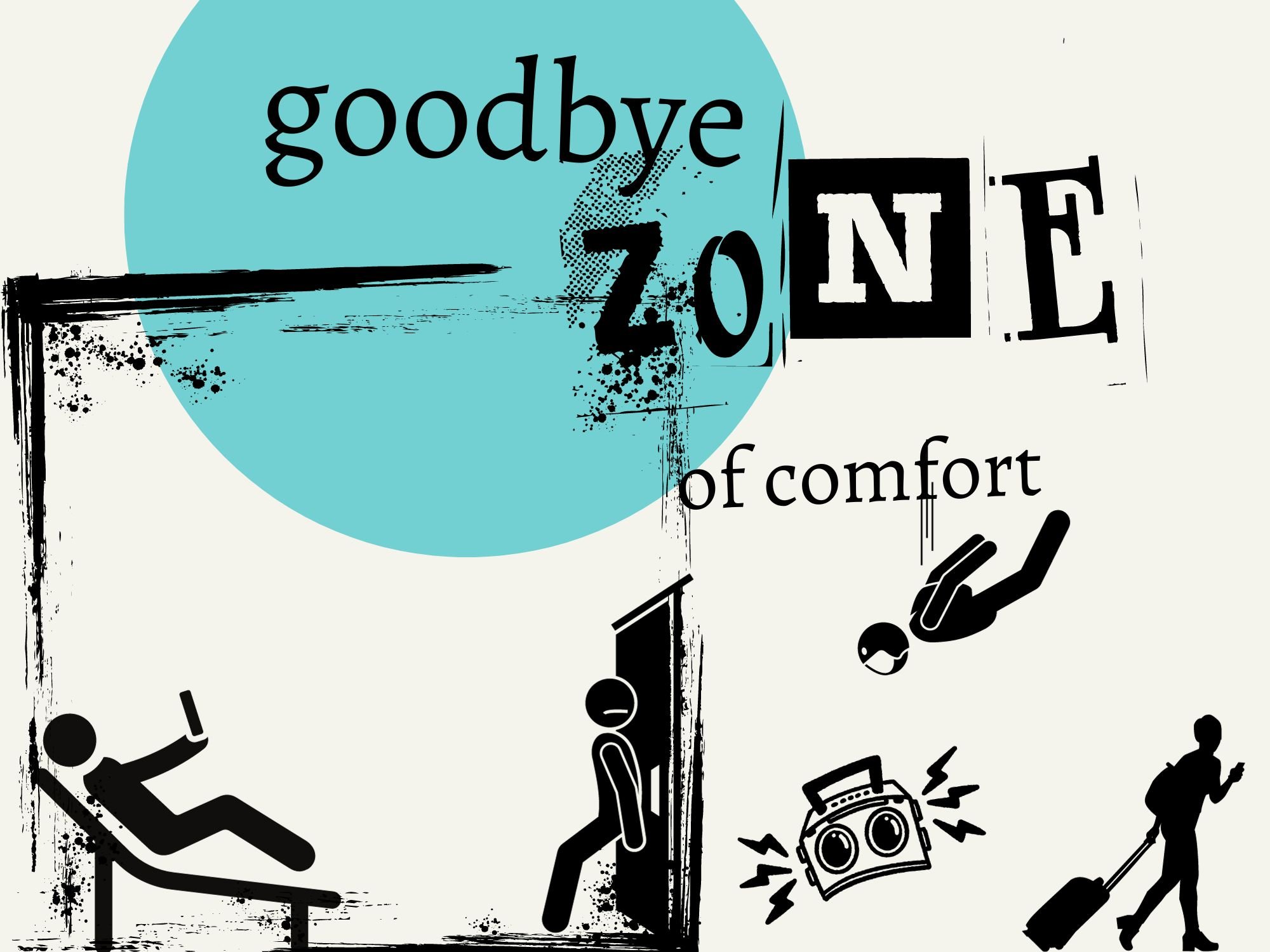Goodbye, Creative Imposter Syndrome (10 tips that work for me)
I’m an artistic fraud – so I’ve always told myself. But I’ve finally found some powerful moves that flip that script. So welcome to my take on how to overcome creative imposter syndrome.
This is the guide I wish I had twenty years ago.
So there’s this book I’ve been reading lately – by Jay Shetty – Think Like A Monk.
He starts out chapter 1 with a quote: “I am not what I think I am, and I am not what you think I am. I am what I think you think I am.”
I like this idea.
(It can take a few times of reading to catch the meaning – but once you get it, it’s pretty profound)
So I’m using it as the backdrop for this post on imposter syndrome in music, art and creative fields.
Now let’s get it.
What Is Creative Imposter Syndrome? (+ why?)
Imposter syndrome can sound so downbeat and negative. Like it’s some diagnosis we have no control over.
I see things differently (hence this post and the list of tips below).
But before we get into all that, let’s define things first.
Creative imposter syndrome is when a creative person doubts their own skills or knowledge and/or feels undeserving of the praise they receive for their work.
I think we’ve all been there before.
It’s reckless modesty drunk on comparison culture (if I had to put on my reductionist hat and oversimplify things).
But the question remains – why do we get it?
Like, what the hell, brain?
Let’s explore the causes and science around the topic.
Why Do We Feel Like Imposters As Creatives?
Let’s go back to that quote from the intro.
I think a large part of this imposter persona stems from our (mis)beliefs about other people’s perceptions of us.
We tend to create imaginary stories about how people are viewing us and our creativity – often based on some fear or imagined outcome.
But why the self-sabotage? (Science? You there?)
According to research published in Frontiers In Psychology (2020), there are strong neurological, biological and evolutionary components to imposter syndrome.
For example, looking for the negatives (i.e., external threats) and for the ways that things can go wrong (i.e., why we’re not good enough) is a survival mechanism.
We have heightened awareness of external threats so we can survive.
Imposter syndrome can also relate to social roles, group acceptance and the importance of the tribe.
Because being a social cast away or tribeless definitely reduced your chances for survival in hunter-gatherer times.
But my main takeaway from all this is pretty simple.
Try not to feel too bad about those imposterous moments – we’re going up against hundreds of thousands (millions) of years of evolution here.
Goodbye, Imposter Syndrome (10 things I do as a musician/artist)
Some of these ideas you may have heard before. But I hope some of these are fresh.
All I know is they’ve helped me tremendously with my own imposter syndrome in art and music.
So please enjoy and I hope you find some awesome value in this list.
1. Stack the Deck
First things first, let’s make sure we’re setting our stage optimally.
The basic idea here is based on this truth: we tend to be as good as – or feel as good as – our surrounding environment.
So let’s nip the creative obstacles in the bud. Let’s stack the deck in our favor.
For me, I mainly focus on three key areas:
My inner circle
The people in my life
Surround yourself with people who inspire you and support you
My outer circle
The content in your life
Consume content that improves your wellbeing and mental health
My environment
Your external surroundings
Choose and design your environment with smells, lighting and artwork that’s inspiring and gives you a good vibe
2. Become Micro + Process Focused
The idea here is to avoid feelings of overwhelm by shifting focus to smaller tasks and the exciting process of growth.
Having audacious big goals is amazing, but they can sometimes look intimidating if we’re closer to the beginning of our journey.
This can often worsen any preexisting imposter syndrome tendencies – especially creativity, which usually requires more vulnerability and putting yourself out there on a personal level.
So two great ways to eliminate this issue is to:
Focus on the micro
Focus on small goals and tasks – getting just 1% better each day seriously adds up
Break down your goals into smaller actionable steps
Focus on the process
Becoming process-oriented, by loving the journey (and all of its ups and downs)
Practice seeing the opportunities in failures and the lessons in setbacks
Focus on quantity, not quality
3. Watch People *Before Their Success
I think we all know about the toxicity of comparison culture.
Yet we still all too easily fall into its trap.
The sage advice of “don’t compare yourself to others” has turned into a cliche mantra that carries minimal impact.
But it’s still awesome advice. It just feels typical.
So what more can we do to avoid this deception in reality (besides deleting all of our social media accounts)?
For me, one incredibly helpful trick is to watch (or read about) successful people before they were successful.
For example, I love rewatching this video of Ed Sheeran before he was famous. It shows him singing, before he could sing well.
It reminds me that even the professionals at the top of their game were beginners at one point.
It reminds me that our brains are plastic and we can learn and improve on anything we want.
It reminds me that I’m not an imposter.
4. Define Your Anchors
This tip is a nice followup to the last one.
We’ve mentioned success and goals a few times already. And these ideas deserve some more of our attention.
Because these ideas have a big impact on our imposter state.
So what do I mean by anchors?
Defining your anchors means having clarity and specificity for what it is we want, why we want it and what motivates us.
You can boost clarity on things by answering a few key questions:
How do you define success?
What are your values?
What is your vision, mission or higher purpose?
What are your motivations?
5. Teach (the protégé effect )
“Tell me and I forget. Teach me and I remember. Involve me and I learn.” (B. Franklin)
Something funny happens when you teach: you get better.
Aye, you get more confident.
It’s called the protégé effect and it’s a psychological phenomenon whereby teaching (or even preparing or pretending to teach) something makes you better understand it.
Perhaps it’s because of the extra attention we give to something when we know we need to teach someone.
Or maybe it’s the psychological confidence that comes from switching roles, putting on the educator cap.
Whatever the case, teaching is a great way to improve our retention, confidence and skill level in something.
Teaching can be a great way to disrupt the imposter syndrome cycle.
6. Change Your Mind
Our minds are crazy powerful. So let’s take advantage of them.
What we believe and how we think about ourselves and our life creates our reality (or at least, our subjective experience of reality).
A change in perspective can change everything.
It’s not always a walk in the park, but how we view ourselves, our problems and our creativity is absolutely malleable.
With enough practice, intention and belief in the process, we can start to shift our mindset from one of fear, worry or anxiety to one of more positivity and possibility.
It just takes some time and a little consistent effort.
So here are a few of my favorite tricks for shifting my mindset:
Embrace pioneer syndrome over imposter syndrome
Pioneer syndrome embraces the idea that you’re in a challenging environment, full of growth and learning opportunities
You’re actually connected with other creatives, forging a new path forward together – you’re pioneers, equally helping and inspiring each other
Start a meditation routine and practice it daily
Practice visualization and feeling my ideal future emotionally (before it ever actually happens)
Just have fun with what I’m doing (by not focusing or aiming for quality or numbers or likes)
Have a more carefree perspective by not taking myself or my stuff so seriously
7. Don’t Fight It (embrace your doubts)
This idea is sort of like reverse psychology – but doing it on ourselves.
It’s also becoming adept at the art of loving your lows.
Rather than running from or trying to suppress and change our imposter feelings, we can instead embrace them warmly with curiosity and full acceptance.
We can embrace our doubts with gratitude and love.
I like to use a simple tree metaphor that I like to use for reframing negatives and issues in self doubt.
🌳
In this tree of mine, I simply reframe my meh moments, doubts and less-than-ideal days as roots.
They’re dirty and hiding in the dark, digging lower and lower into the mud.
But the more roots you have, the stronger and more beautiful the tree is.
I mean, I’m no botanist, but I think that’s how it works (in part, at least).
So find your own metaphor – or use my tree trick.
Whatever the case, occasionally embracing our imposterous moods rather than fighting them is a solid move.
8. Change Your Labels (+ your language)
This tip is subtle, but has had a huge impact on my unreasonable imposterous thinking. So I hope it helps you too.
First, I change the labels I use to identify myself.
For example, I’m not labeling myself as a filmmaker who makes travel films. I simply make video journals of my traveling and songwriting.
It’s way less weight.
Next, I change my language to be more experience-based. I do this by personalizing my creativity and advice by leveraging my personal experiences.
I basically add the phrase “…for me” to everything.
For example, I never learned the technical rules and theory of songwriting. So I often feel like a fraud embodying it or teaching it (since I’m self taught and tend to write songs willy-nilly).
But when I change my language, I change my feelings. So shifting from “I’m a songwriter” to “I like to write songs” feels different.
Or let’s say I’m writing a new article on how to improve your songwriting. But again, I didn’t go to school for this and I have no accolades or degrees to show.
So what’s a better angle for me:
How to Write Better Songs and Become A Stronger Musician
How I Write Better Songs and Became A Stronger Musician
Notice the difference? It’s subtle – but the second option changes everything.
By reframing my content and creativity around my personal experiences and journey, my fear of failure, not being up to snuff or just flat out being wrong goes away immediately.
Because no one can tell me that my personal experience is invalid or incorrect.
It’s personal. It’s me. It’s my story.
So lean into and embrace your journey and uniqueness. It may be your ticket out of imposter land.
9. Set More Realistic Time Horizons
Sometimes, imposter syndrome may be tied to the pressure we put on ourselves.
Luckily, there’s a simple solution here – put less pressure on ourselves.
There are various ways to do this, and choosing the right strategy of course depends on your personal preferences, starting points, goals and situation.
But one of my go-to moves is to simply adjust my time horizons.
I just give myself more time to do or complete my creative projects.
I mean, don’t get me wrong, a little pressure is also important (for example, my song-a-day challenge is definitely boosting my creativity and discipline).
But we’re trying to address that imposter in us here.
So try adjusting your own expectations – and keep that imposter at bay.
10. Get Better…
OK so, there’s an elephant in the room.
Is there ever any truth to imposter syndrome? I mean, is it possible that at least some of these feelings are coming from our subconscious knowing that we aren’t quite up to snuff.
Or rather, are we aware, at some level, that we’re actually not as good creatively as we know we could be.
For me, there have been times where my potential was unmet simply because of some skill deficit or bad habit.
So the work I was putting out, I knew deep down that I could be doing better (but I just needed to take the time to upskill myself).
Again, this isn’t always the root of imposter syndrome. But it’s something worth exploring.
So here are some quick tips for honing your craft:
Stack new skills
Never stop learning
Don’t feel bad about failure
Learn from mistakes by trying again (and again)
Be patient (skill building takes time)
Want More? Check Out These Sweet Reads!





